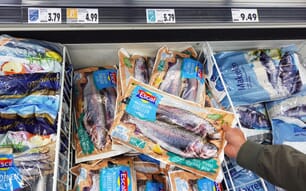‘Prevent Escape’, which involved eleven partners from Norway, Greece, Spain, Malta, Scotland and Ireland, began in 2009. It was led by the Norwegian institute for Fisheries and Aquaculture. The Irish component was led by Dave Jackson of the Marine Institute, writes the Save Bantry Bay group.
'Assessing the causes and developing measures to prevent the escape of fish from sea cage aquaculture’ revealed that the introduction of standards for fish farm installation in Norway in 2006 halved the number of escapes over the next four years in spite of production increasing by 50 per cent.
Save Bantry Bay and Friends of the Irish Environment have welcomed the Report and called on Fisheries Minister Simon Coveney to bring in standards and inspections in Ireland.
The Minister recently told the Oireachtas in a written Parliamentary Reply to Clare Daly, TD, that while he was ‘satisfied that the current inspection regime is satisfactory’, his department was ‘alert to ongoing technological changes which enhance the security of all structures on licensed sites and in this regard my Department is currently preparing a draft protocol for the structural design of marine finfish farms.’
Friends of the Irish Environment have appealed to the High Court for release of a Report examining the loss of 230,000 farmed salmon in Bantry Bay in February 2014. Minister Coveney refused to release the Department of Marine’s Engineering Division report claiming it was an ‘internal document’ whose release would ‘not serve public interest’.
Yet a previous report on the escape of 80,000 farmed salmon in Clew Bay in 2010 which was released included a Department of Marine’s Engineering Division Report which showed the Minister himself to be at fault for not requiring the necessary inspections of the equipment which failed, stating: "If a more rigorous/frequent mooring inspections programme had been in place it is possible – even likely - there would have been earlier detection which would therefore have avoided the November 2010 failures."
"While the Department has no capability itself of mounting its own inspections of underwater equipment it does have a role to play in ensuring that licensing conditions to the effect that licences shall take all necessary steps to prevent the escape of fish are complied with. We did not to my knowledge actually check that there was an adequate monitoring system in place at this site."
A note by an Assistant Secretary on the Report states: "This Report clearly points to the fact that adequate systems in relation to certification, maintenance, inspection, repairs and records need to be in place for this type of installation."
The Prevent Escape report concluded: "To prevent escapes of juvenile and adult fish as sea cage aquaculture industries develop, the Prevent Escape Project recommends that policy makers introduce a technical standard for sea-cage aquaculture equipment, coupled with independent mechanisms to enforce the standard."

